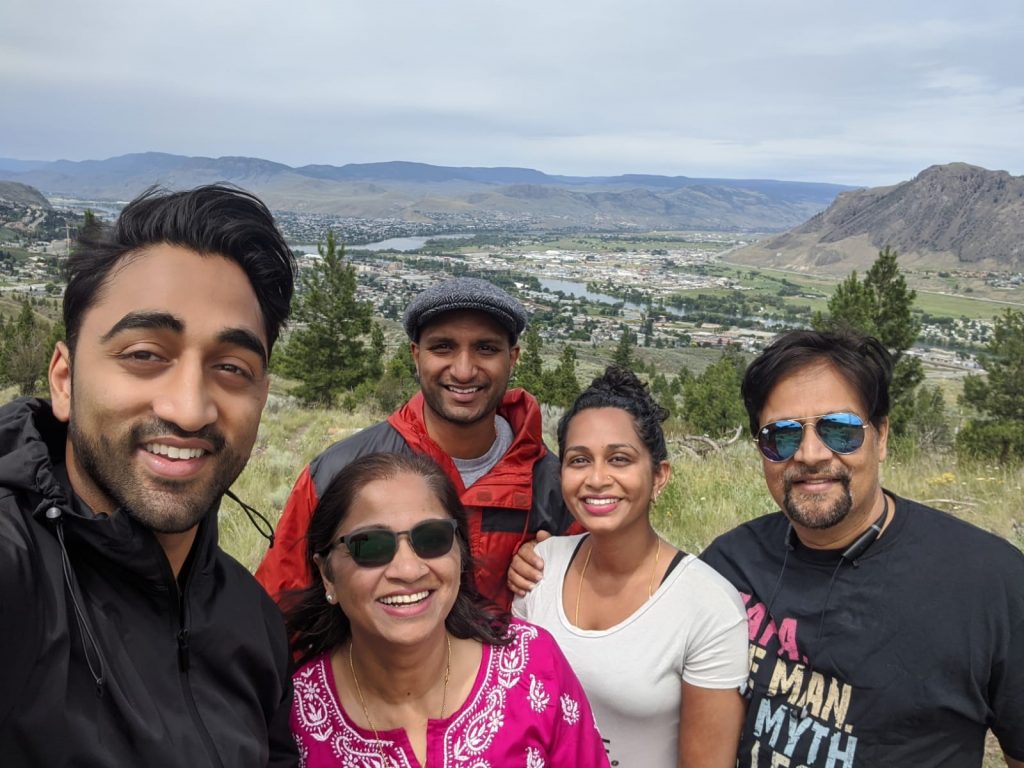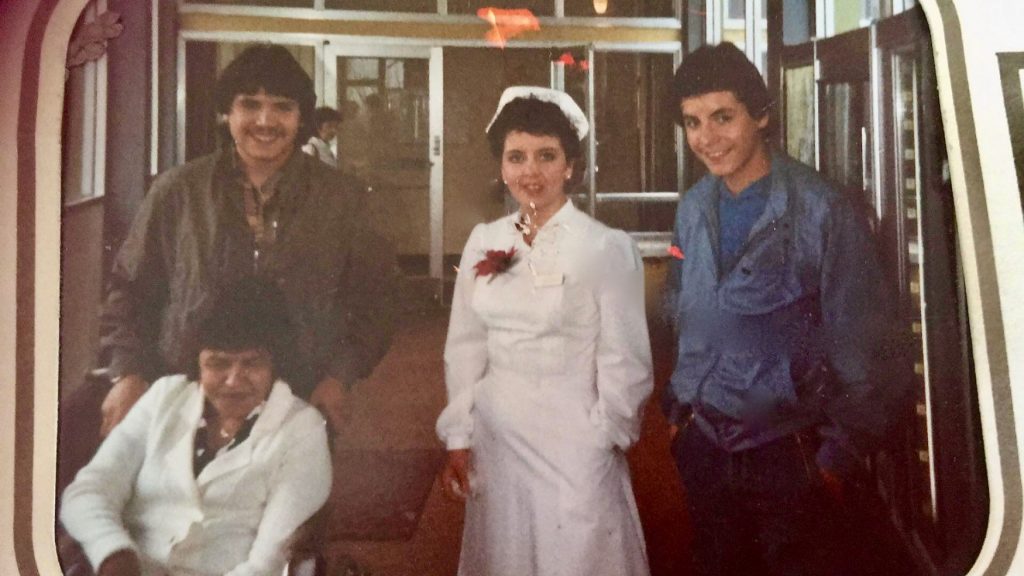Rani Srivastava and Lisa Bourque Bearskin have had different paths, but their strengths as leaders and change influencers have put them into the same fellowship.
TRU Dean of Nursing Rani Srivastava and CIHR Indigenous Research Chair in Nursing Lisa Bourque Bearskin are being inducted into the Canadian Academy of Nursing Fellowship this Friday, Oct. 15.
The virtual ceremony starts at 9 a.m. and celebrates the country’s most accomplished nurses, whether they work in clinical practice, education, administration, research or policy. Anyone can attend, but they ask that you register in advance.
And while Srivastava and Bourque Bearskin had vastly different beginnings in their nursing careers, both have been unwavering in their commitment to helping others, sparking much-needed change in the profession and providing leadership.
Nursing put them on a journey of self-discovery. And what they learned was that they are leaders and mentors and advocates. They have positively influenced others.
To hear them talk about why or how they got into nursing, you’d think they were both born for the profession, even when they didn’t know it.
Srivastava always knew she wanted to go to university and study something related to health and science.
“As I was looking at the application, there was a box that said nursing. I had certainly encountered nursing in my world, and I thought, I think I can do that. So I checked it off and I thought we’ll see. If I like it I’ll stay, and if I don’t, I’ll figure something out after first year,” she recalls.
“But I have to tell you from the time I entered nursing, I’ve never looked back. I’ve loved it from day one. And I think what I love about it is the opportunities it has given me to be with people, it has done wonders for me as a person, and from a career perspective, I’ve had amazing opportunities to do all kinds of wonderful things. So I’ve never had a second thought about it.”
Bourque Bearskin’s experience was entirely different. She was influenced by her mother and grandmother (kohkum). She saw how they were badly treated, discriminated against and harmed. She also saw how her kohkum took care of her mother, who was a victim of violence and trauma, while she herself took care of her siblings and other family members.
“I was always taught to care, from a very young age. It was just how we did things,” she says.
In fact, her kohkum encouraged her to go to school and learn to be a nurse.
Bourque Bearskin left school in Grade 11, which kept her out of nursing programs but allowed her to become a health-care aide. She upgraded, worked her way up through various caring positions, and in 1991, was accepted into a degree program. And now she has her PhD, which is still rare among Indigenous nurses in Canada.
“I captured the heart of one social worker and one teacher, they offered me these opportunities. After being removed from my family, as part of the child removal era, specifically the residential schools and sixties scoop experience, I learned what it was like to not fit in and this brought a fiery spirit to what I wanted to do. I always followed that path, of caring for people, I wanted to show others I was just as capable,” she says.
In doing her PhD, she worked with four Indigenous nurses — all community nursing leaders, some would say healers and helpers in their own way — over the span of a decade.
“It really spoke to the importance and the need to valuing knowledge system, there’s this other way of knowing, there’s this other way of being that wasn’t being addressed in nursing. I knew that that’s where I could contribute, I knew where I could open up some gaps and contribute to advancing nursing knowledge,” she says.
“Nursing knowledge was and still is very rooted in a medical model, treatment focused. When we talk about Indigenous health, it’s about wellness, it’s about healing, coming together, it’s about learning about the health-care system. And for health-care practitioners, it’s about reclaiming our own history, how we’ve treated and how we’ve worked with Indigenous populations, it is such a unique practice, that deserves our attention.”
During their very different careers, both Srivastava and Bourque Bearskin moved into leadership roles and have influenced the paths of others.

Srivastava remembers an undergrad student she met while recruiting graduates into mental-health nursing. She didn’t even realize she had influenced the young student. It wasn’t until some years later, when they met again when the student was doing her PhD, that she found out how much of an influence she had.
“I can think of her — and I can think of a few other colleagues, graduate students, or nurses in practice — who through the conversations I’ve had with them, question and hopefully have belief in themselves. . . . The change I’ve seen is the self confidence, the willingness to go after something that they thought wasn’t attainable for them,” she says. This is what she received from her mentors, and what she hopes will help others.
“Those are some of the impacts I can see when I think about individuals and how I hope I have been an influence. They would have discovered their way, they’re fantastic people. But sometimes the conversations we had facilitated that.”
Bourque Bearskin says the fellowship is a way to encourage others.

“If I can support other Indigenous peoples to engage in advanced studies, that’s my purpose. That’s my greatest reward, to honour those other Indigenous nurses who have come before me. . . . I want to honor and recognize all the years of service to those who came before me. And my obligations now are to those nurses that are coming behind me and trying make that pathway a little bit smoother for them.”
On Friday, Srivastava and Bourque Bearskin will be tuning in for their virtual induction ceremony.
“Nursing has taught me about people. One of the areas I’ve done a lot of work in has been around the space of inclusion and belonging and I think this is a profession that has huge diversity across the profession. When I think about the future, I think we have a lot of opportunity to lead the way in what it means to really create inclusive healing societies and I’m excited by that,” says Srivastava.
Bourque Bearskin is grateful to her family, her nation, her Indigenous colleagues, TRU and Tk’emlúps te Secwépemc for the opportunities she has had as she paves the way for the nurses of the future.
“There’s still so much work to do. . . . To prepare for seven generations ahead. I would be very worried about my grandchildren coming into health care,” she says, noting racism is still a problem.
“We all want to be of service for our nations. To be part of this academy just shows and signifies there are a number of Indigenous nursing leaders who have been nominated into this fellowship and it creates a safe space where we are now recognized as valued and as equals. As being good enough. Throughout my career, I always felt I wasn’t good enough. Being nominated by my Indigenous colleagues was that key message to say you are good enough Lisa, you have made an important contribution.”
Srivastava and Bourque Bearskin were nominated and encouraged by co-workers and peers to apply for the fellowship. While they had to submit their own information, others provided support through reference letters. Now they have earned the right to use the credential Fellow of the Canadian Academy of Nursing (FCAN).

